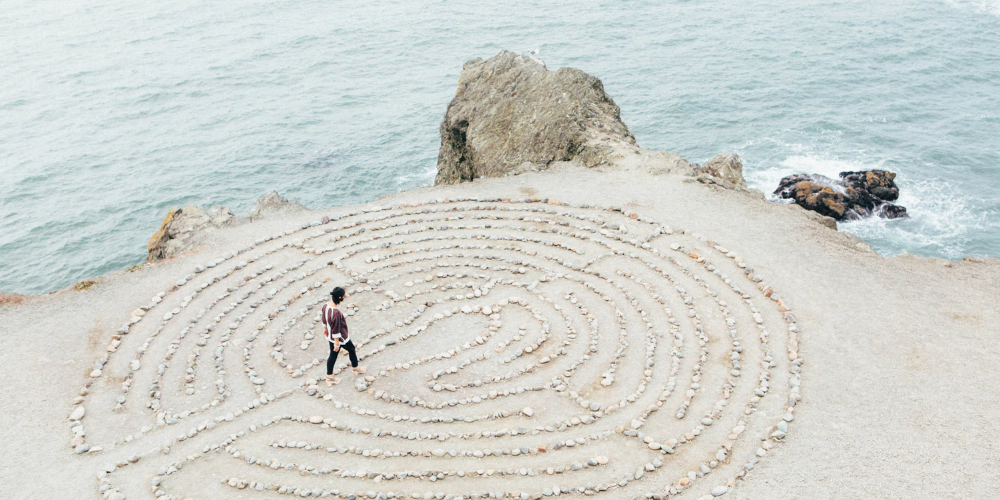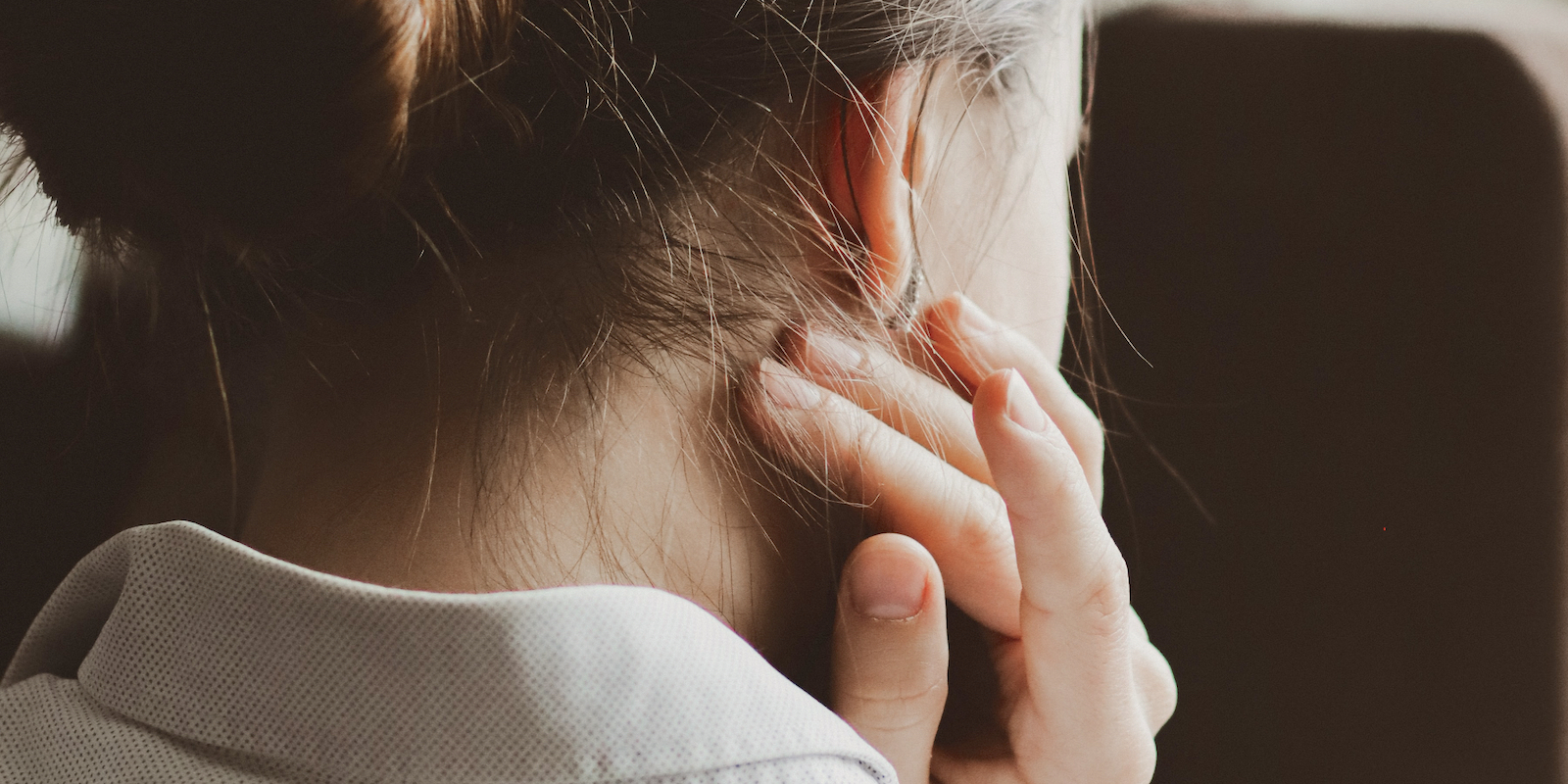In this article, I explain the basis of rejection, its function and present five science-based strategies that can help us to deal with rejection.
You can also listen to this as a talk:
- Understanding The Pain Of Rejection And How To Deal With It EQness 19:17
How To Deal With Rejection: What Is The Pain Of Rejection?
The pain of rejection is not only caused by us being disliked or ignored by others, it is also felt when we are mistreated by people we love or when our feelings and contributions are disregarded or not appreciated as we would like, for example, at work. The pain caused by rejection is very intense because it involves our emotional and cognitive systems, which are receiving the message that we are not valuable enough. Although we have been in contact with rejection from early years, we usually find it challenging to deal with it, probably because we do not really know what it is.
Although we know that everyone we interact with has gone through rejection more than once in their lives, this does not make it easier when we are the ones suffering it. Sometimes the wounds rejection creates are so deep that they take a long time to close, leaving those reminders of our experience as ugly scars in our hearts and our minds.
We start to get familiar with rejection during our childhood and teenage years. Then in adulthood, things don’t get better, and although we may think that our previous experience has given us the ability to master rejection and to be above it, the reality is very different.
However, it is important that we learn to respond cognitively, emotionally and behaviourally during these situations, because not taking appropriate care of our pain of rejection, may have a big impact in our mental, emotional and physical health.
When We Feel Rejected
Rejection is a fundamental characteristic in social life and in general in our lives. The word social, implies that it takes place during our interaction with others who will express verbally or nonverbally how much they value our relationship, indicating in this way if they reject or accept us.
Although there are obvious behaviors or expressions from others that clearly indicate that we are being rejected, the degree to which we feel rejected is very personal.
Each person has his own standard regarding what it means for them to be accepted or rejected. Then, when interacting with people, if those minimal expectations are not met, rejection will arise. This is called: perceived relational evaluation. Occasionally, although we feel rejected, objectively this may not be the case. For example, if we are used to perceiving that we are highly regarded by someone important to us, and one day we feel that this level of appreciation is not as high as before, then we might feel rejected, although we are still considered valuable by the other person.
The expressions of rejections include more than being disliked by someone. We feel rejected when we are ignored or mistreated by people that are meaningful to us, or when our feelings, belongings, contributions, actions or opinions are disregarded, or when we are treated unfairly and with disrespect. We may also feel rejected by strangers although the discomfort caused by them is usually fast lived.
Read more: Dr. Candice Creasman explains two reasons why boundaries are hard on us and guidance how to stop avoiding conflict, manage boundary violations and bring more understanding to our relationships.
The Link Between Rejection And Belonging
Regardless of whom or what caused it, the experience of rejection will bring pain with it. But, feeling this is not bad, because this pain of rejection is a very important adaptive response related to our sense of belonging.
We were born with the need to be part of a group and be accepted by them, because it is very relevant for our survival. In the past, for our ancestors being excluded or rejected by their peers was a life-threatening situation (equivalent to having a death sentence). Thus, the pain of being rejected is hardwired in us, affecting our psychological, emotional and behavioral expressions, making sure that we will take the appropriate measures to reduce it, which means, to put into action behaviours that will minimize the rejection.
This is part of nature’s wisdom. But in this wisdom, we have also developed core features that are preventive and serve to avoid being rejected and support acceptance towards others.
Additionally, as an interesting fact that shows how important is for our survival to be able to efficiently detect we are being rejected, research has shown that our brains react differently when rejection is coming from someone very close to us (for example, a mother) in comparison to when it is a stranger who perpetrates the pain.
In all that negativity associated with rejection, there is a positive note. The pain of rejection is in principle an indication of a healthy emotional response. That, somehow, should give us some comfort, because then the problem is not to feel it, but how we respond to it.
But this is not a simple matter since being ignored or disregarded is a very painful experience that is felt at the physical, emotional and psychological level. How is that?
How To Overcome The Pain Of Rejection
The pain we feel is as real as physical pain, because it activates brain regions that are part of the physical pain system – the set of emotions triggered by rejection have negative effects and therefore are painful to feel. Furthermore, when we feel rejected, our sense of belonging feels under attack and our self-esteem is highly affected because it implies that there is something wrong with us or our actions, making us question our self-worth and self-efficacy. All this causes great stress affecting our mental stability and emotional balance, and thus, the way we think, act and make decisions.
But this does not mean our response will necessarily be inadequate. In spite of all that negativity happening inside us, an automatic natural response after we experience exclusion is to become very responsive to positive emotional information.
An initial tendency is to try to improve our relational value by behaving in ways that will make us more desirable to relate with and will increase our chances to be accepted. Let’s notice that the way we respond is associated with our level of emotional and psychological health. For example, people with low levels of self-esteem or are suffering anxiety or depression will find it more difficult to overcome the effect of rejection which will also be felt with more intensity than someone having a healthier emotional background.
There are, however, other ways to respond, for example, people may want to ignore the situation and find comfort searching elsewhere for alternative relationships in which they will feel more appreciated or they may decide to fully withdraw putting distance between the person who is rejecting them and themselves, because it is clear that nothing can be done to improve the situation and then the rejector and the relationship with this person loses its value.
Read more: In this article, meditation and mindfulness teacher Lou Redmond explores how to stop caring about what others think and take back your personal power.
How Rejection Affects Our Ability To Be Compassionate
As mentioned before, rejection has the capacity to cause the immediate appearance of different negative emotional states – such as sadness, anxiety, anger, embarrassment, guilt, loneliness, jealousy among others – that may have a profound effect on our behaviors when experiencing rejection during long periods of time. I will give you an example for this:
One lady that was having sessions with me to help improve her relationship with herself and in general revitalize her self-esteem, was being the object of devaluation, unfair treatment and rejection by her boss at work. One day during one of our sessions, she told me with a mischievous smile that, during their weekly meeting (at work), she had realized that each time her boss proposed something, or mentioned he was expecting something good to happen, a little voice appeared in the background of her mind saying “I hope it does not work”. As it happened several times during the meeting, she found this “constant wishing things did not work for her boss” funny and amusing as this has never been part of her character to wish ill on others. During the meetings, she was constantly challenged and her ability to perform was constantly questioned by her boss, and although none of her colleagues agreed with it, nobody ever said anything. Although she understood why her colleagues may have not stepped in, this made her feel sad and disappointed towards them while feelings of anger and hostility were developed toward her boss.
This is a clear example of the effect of rejection on us.
Scientific studies have shown that continued exposure to rejection negatively affects our levels of generosity and compassion for ourselves and others, decreases our capacity to display and nurture positive emotions and limits our ability to self-regulate. When this happens we may disconnect from our inner self and open space to unhealthy behaviours, for example, overeating. Rejected people also become inclined to behave in a selfish way if they realize their behaviour will not increase their level of acceptance.
Rejection is a source of frustration and anger when it is interpreted as an indication of us being denied the possibility to achieve our goals, which can range from being accepted and respected by our peers, loved by our romantic partner or being successful at work. If the person does not have the necessary emotional and psychological tools as well as the right context to deal with this type of situation, constant rejection may also result in aggression. However, this is not the typical case as it is counterproductive because hostility and violence, for obvious reasons, will result in more rejection rather than acceptance.
Browse through hundreds of free guided meditations for compassion.
How To Deal With Rejection In A Healthy Way
As we have seen, rejection brings with it social pain – which is the way our body responds to being ignored or excluded by those around us. This pain is accompanied by emotional distress and affects our ways of thinking and acting. But, we all possess automatic coping strategies that are activated to diminish the discomfort caused by rejection once it is felt. However, the efficacy of these strategies depend on the quality of our emotional and psychological health.
How To Deal With Rejection: 5 Science-Based Strategies To Reduce The Pain of Rejection
Improve Your Self-Esteem
Research has shown that having a high level of self-esteem is a good protector against the negative effects of rejection. Learning to maintain our self-esteem in healthy levels can be one of the first measures to adopt when seeking the improvement of our well-being during difficult periods and to avoid the detrimental effects of future rejections. But, be aware that this is not as simple as to tell ourselves how wonderful we are while looking our face in the mirror.
Working on our self-esteem is a bit more complex than that, but it is satisfying and definitely worthwhile doing because it will have immense positive repercussions in our emotional and mental health. Understanding how to cultivate and nurture our self-esteem is a beautiful and interesting process that involves the acquisition of different tools to nurture our psychological well-being.
Discover this playlist with guided meditations for self-confidence and self-esteem that help you to step into your powerful self.
Practice Mindfulness
The practice of mindfulness has proven to be fantastic during these hurtful periods. Starting or reinforcing our mindfulness practice is of great support as it reduces the intensity of difficult emotions and increases the sense of self-control. This happens because, when we are mindful, we allow things to be as they are, without elaboration or further evaluations about the situation. This means that the negativity derived from rejection is felt in a less intense way, because we do not add things to it and do not duel on it.
Being connected to the present moment allows us to notice positive things happening around us and that is very nurturing. Even more when we are outside the rejecting environment since our attention will be connected to what is happening in the now and not to what others said or did.
Start Your Day With Purpose & Intention
Starting our day with a healthy morning routine and ritual that includes physical exercise and meditation can further support our intention to provide a positive environment for ourselves, our thoughts and our emotions.
Improve your self-esteem, practice forgiving yourself and letting go and start your meditation ritual with these guided meditations by Dr Olga-Lucia Gamboa-Arana. Find more content on her Insight Timer profile.
- Letting Go With Curiosity & Compassion EQness 14:58
- Opening To Self-Forgiveness EQness 11:57
- Mini-Meditation: Handling Our Reactivity During Difficult Situations EQness 03:43
- Befriending Myself EQness 11:31
- Forgiving Myself EQness 19:21
Explore hundreds of free guided meditations for acceptance that help to recognize feelings in the present moment and view experiences more compassionately.
Engage In Prosocial Behavior
Another thing we can do to help ourselves overcome the pain of rejection is to engage in prosocial behavior. It has been shown that it helps to minimize the feeling of being excluded by increasing our sense of belonging and our life satisfaction. At the same time, it also nurtures our self-esteem by affecting our self-concept in a positive way.
Additionally, reinforcing our links with those around us that treat us with respect and love is very beneficial to regain our sense of control and reduce the negative affect induced by rejection.
Reconnect With Nature
Lastly, and one of my favorites, reconnect with nature: According to scientific studies, nature is a good antidote to recover from the negative effects caused by rejection. A scientific explanation for this is that deep connection with the natural world seems to be part of our biology. Nature being itself our first home, when immersed in it, it has a positive effect on our sense of connectedness and belonging.
These strategies can help to deal with rejection and the pain, but keep in mind that if the conditions around you seem not to improve, at some point, there may be the need to evaluate the situation and make decisions in favor of your well-being. Let’s keep this in mind that each time we overcome a difficult situation, our psychological and physical well-being get strengthened.







